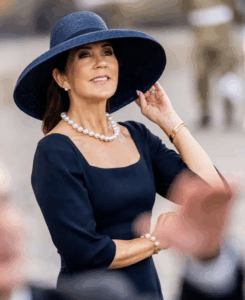Mary de Haas Biography – Early Life & Education, Academics Career, Net Worth & Achievements. South Africa’s Fearless Human Rights Activist and Violence Monitor
Who is Mary de Haas?
Today let’s talk about Mary de Haas Biography: Dr. Mary de Haas is one of South Africa’s most respected social scientists, human rights defenders, and activists. For more than four decades, she has stood at the forefront of social justice, violence monitoring, and community advocacy, especially in KwaZulu-Natal, one of the regions most affected by political and social unrest in the country.
Her tireless efforts in exposing injustices, holding institutions accountable, and defending the rights of ordinary South Africans have earned her both national and international recognition. This biography explores the inspiring life, career, and lasting impact of Mary de Haas, the woman whose research and activism have shaped South Africa’s human rights landscape.
Mary de Haas Biography
Mary de Haas Early Life and Education
Mary de Haas was born in South Africa and grew up with a strong sense of justice and compassion for the vulnerable. Her interest in social welfare began at a young age, leading her to study Social Work — a field that allowed her to combine empathy with practical action.
After qualifying as a social worker, she furthered her studies at the University of KwaZulu-Natal (formerly the University of Natal), where she graduated cum laude with a Master of Social Science (MSocSci) in Anthropology. Her academic journey reflected her deep curiosity about human behavior, culture, and society and it set the stage for a lifetime of activism and research.
While working as a principal of a children’s home in Durban, Mary witnessed firsthand the effects of violence, poverty, and social inequality. These experiences profoundly shaped her determination to advocate for justice and reform.

Mary de Haas Academic Career
Mary de Haas joined the University of Natal (now UKZN) as a lecturer in Social Anthropology, where she taught for over 20 years. During this period, she inspired countless students to engage critically with South Africa’s complex social dynamics, from cultural traditions to systemic inequalities.
Her research extended beyond the classroom. She studied African family structures, marriage and divorce patterns, traditional leadership, and community conflicts. Through her work, she emphasized the importance of understanding South Africa’s cultural diversity within its broader historical and political context.
By the time she retired as Senior Lecturer and Programme Director of Social Anthropology in 2002, she had already built a reputation as one of the most dedicated and fearless voices in academia and public life.
Mary de Haas Rise as a Human Rights Activist
While many academics confine their work to research and theory, Mary de Haas brought her insights into real-world activism. In the mid-1980s, during one of South Africa’s most turbulent political eras, she began documenting incidents of political and community violence in KwaZulu-Natal.
Her work gave rise to what later became known as the KwaZulu-Natal Violence Monitor, a long-running independent report that exposed killings, corruption, and abuses of power often ignored by authorities. Through her reports, she became a key watchdog for justice, fearless in her criticism of both state and political actors.
Her activism often brought her into conflict with the establishment, yet she remained undeterred. For Mary de Haas, truth and accountability always came before comfort or convenience.
Mary de Haas Major Contributions and Advocacy Work
Dr. Mary de Haas’s contribution to South Africa’s human rights landscape is vast and impactful. Her activism spans across several vital sectors:
- Violence Monitoring:
For decades, she has tracked patterns of violence, political killings, and police misconduct in KwaZulu-Natal. Her insights have informed journalists, researchers, and policymakers alike. - Medical Rights and Ethics:
Mary co-founded the Medical Rights Advocacy Network (MeRAN), which promotes patient rights and ethical standards in healthcare, ensuring that medical practices align with human dignity and fairness. - Policing and Justice Reform:
She has been a vocal advocate for reforming the South African Police Service (SAPS), exposing corruption, unlawful killings, and abuse of authority. Her evidence-based reports have influenced legal reforms and public debates on policing ethics. - Women’s and Community Empowerment:
Mary’s work also touches on women’s rights and grassroots empowerment. By documenting cases of abuse and discrimination, she amplifies the voices of marginalized groups across South Africa.
Mary de Haas Recognition and Awards
In recognition of her unwavering dedication to justice, Mary de Haas received an Honorary Doctorate of Laws (LLD) from Rhodes University in April 2021. The award celebrated her lifelong contribution to human rights, social justice, and peace-building.
Rhodes University praised her as “a beacon of courage and integrity in the face of systemic injustice.” The honorary degree solidified her status as one of South Africa’s foremost human rights advocates.
She currently serves as an Honorary Research Fellow at the School of Law, University of KwaZulu-Natal, continuing her engagement in academic and policy-related work even after retirement.
Mary de Haas Recent Work and Influence
Even in her later years, Mary de Haas continues to speak truth to power. In 2025, she made headlines when she offered to testify before the Madlanga Commission in Parliament, addressing critical issues related to police infiltration and corruption in the security sector.
Her consistent dedication to transparency, accountability, and justice has inspired a new generation of South African activists, journalists, and legal scholars. Her work remains a cornerstone for understanding violence and governance in post-apartheid South Africa.
Mary de Haas Personal Life and Character
Mary de Haas is known for her fearless honesty, analytical mind, and compassionate heart. Despite facing threats and backlash, she has never wavered from her mission to hold power accountable. Those who work with her describe her as principled, disciplined, and deeply committed to truth and fairness.
Her life reflects the power of persistence, a reminder that real change often begins with a single person’s refusal to stay silent.

Frequently Asked Questions Mary de Haas
Who is Mary de Haas?
Mary de Haas is a South African social scientist, activist, and violence monitor known for her decades-long work in human rights advocacy, especially in KwaZulu-Natal.
What is Mary de Haas known for?
She is best known for her work in violence monitoring, police reform advocacy, and as co-founder of the Medical Rights Advocacy Network (MeRAN).
What is her academic background?
She holds a Master of Social Science (cum laude) in Anthropology from the University of KwaZulu-Natal and is a qualified social worker.
Has she received any awards?
Yes. She received an Honorary Doctorate (LLD) from Rhodes University in 2021 for her contributions to human rights and justice in South Africa.
What is she doing now?
Mary de Haas continues her advocacy as an Honorary Research Fellow at the University of KwaZulu-Natal and regularly publishes reports and analyses on violence and policing.
Conclusion
Dr. Mary de Haas has dedicated her entire life to building a safer, fairer, and more transparent South Africa. Her relentless pursuit of justice and her refusal to be silenced by power or fear have made her a national treasure and a role model for activists around the world.
Through research, education, and advocacy, she has proven that one person’s determination can transform communities and influence nations. As South Africa continues to grapple with challenges of inequality and corruption, Mary de Haas’s legacy stands as a guiding light, reminding us that justice is not a privilege, but a duty.
Also Read: Amandeep Duli IAS Biography
